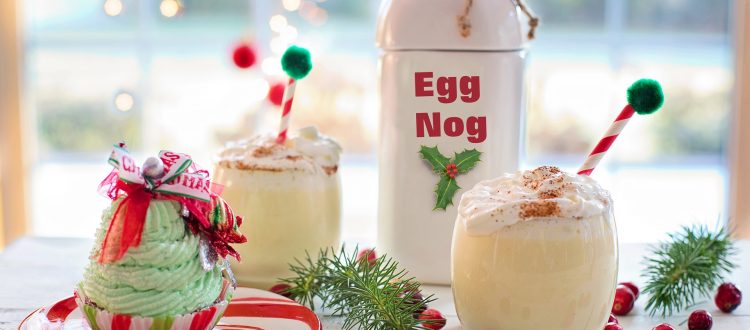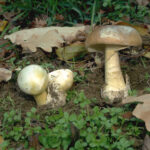
The Food Safety Information Council today launched their Christmas and Summer entertaining food safety advice.
Cathy Moir, FSIC Chair, said that this is a great time for us to get together with family and friends and to try out new recipes but we need to be extra careful with food safety practices when catering for a lot of people and in the hot summer weather.
‘Our research found that one in three Australians are either at serious risk of getting food poisoning themselves or live in a household with someone at risk. Any one of your guests could be in these vulnerable groups such as being pregnant, elderly or having reduced immune systems due to illness or certain medicines,’ Ms Moir said.
‘Here are some of our key Christmas and Summer entertaining food safety tips:
- Plan ahead and don’t buy too much food. It’s vital that you don’t overstock your fridge and freezer, as this won’t allow the cool air to circulate freely and perishable food cannot be adequately frozen or chilled. Less food will also help to reduce food waste.
- Make room in your fridge for perishable foods by removing alcohol and soft drinks and put them on ice in a container or laundry sink. This also stops guests opening the fridge and helps to maintain the temperature at 5°C or below. Use a fridge thermometer to check the temperature.
- Think about getting a turkey breast or a turkey buffé that is simpler to cook than a whole turkey. If you do need a whole turkey ask your food business if they can defrost it in their cool room ready for you to pick up. Otherwise it must be defrosted in your fridge which can take several days and also increase the risk of potentially contaminating ready to eat foods stored in the fridge.
- Don’t wash any poultry before cooking as that will spread the bacteria around your kitchen. Cook the turkey until a meat thermometer shows it has reached 75° C in the thickest part of the thigh and cook any stuffing separately as it might not fully cook inside a whole turkey. Probe thermometers are readily available, easy to use and help you make sure that food has reached the right temperature.
- Cooked egg dishes are simple and nutritious but try to avoid raw or minimally cooked egg dishes, such as raw egg mayonnaise or aioli, egg nog or fancy desserts, which can be a particular risk for food poisoning A safer alternative, if you want to serve raw egg dishes, is to look for pasteurised egg products.
- Christmas ham won’t last forever – check the storage instructions and best before or use by date before removing the ham from its plastic wrap, cover it with clean cloth soaked in water and vinegar so it doesn’t dry out, and store it in the fridge at or below 5°C. It is important to remember that the use by date on the original packaging won’t apply after the packaging has been removed, so check the fine print and see if the ham has a suggested shelf life after opening. Reduced salt hams are now becoming popular but will not last as long as conventional hams so think how much you are going to use in the next week or so and freeze some for later.
- Don’t leave dips and other perishable chilled foods like patés, cold meats, soft cheeses like camembert and brie, cold poultry, cooked seafood like prawns and smoked salmon, sushi and salads out for more than two hours. Put out small amounts and replace (not top them up) from the fridge.
- Refrigerate leftovers as soon as possible. If perishable foods and leftovers have been left out of the fridge for less than two hours they should be okay to refrigerate or freeze to eat later, so long as it hasn’t been sitting in the sun. Never eat perishable food that has been unrefrigerated for more than four hours as it may not be safe and should be thrown away. On a very hot day food should not be refrigerated if it has been outside in the heat for more than an hour and discarded after it has sat outside for 2 hours.
- Always reheat leftovers to 75°C in the centre of the item or the thickest part to kill any food poisoning bugs. Use a probe thermometer to help you make sure that the leftovers have been reheated safely.
- Don’t forget to wash your hands in warm soapy water before preparing and cooking food, and after handling eggs, raw meat, particularly poultry, burgers and sausages.
Test your knowledge with our Christmas and holiday entertaining quiz.
For more information see our Food Safety at Christmas advice.
The Food Safety Information Council would particularly like to thank Australian Pasteurised Eggs, the Gold Sponsor for our Summer Campaign, as well as Tonic Health Media for their support. Tonic Health Media are Australia’s largest health and wellness network and will be broadcast our important food safety messages in 5,300+ GP practices, hospitals, pharmacies and health centre waiting areas across the country to an audience of 15 million+ per month see their website for more info.
Media contact:
Lydia Buchtmann, Food Safety Information Council, 0407 626 688 or info@foodsafety.asn.au
The Food Safety Information Council is a health promotion charity which aims to address the estimated 4.1 million cases of food poisoning in Australia each year that result in 31,920 hospitalisations, 86 deaths, 1 million visits to doctors



